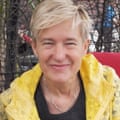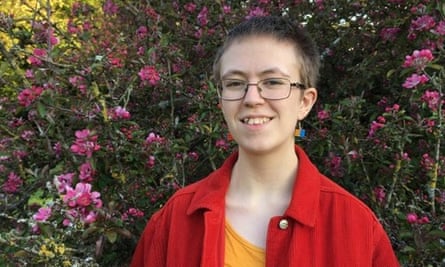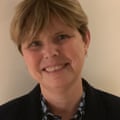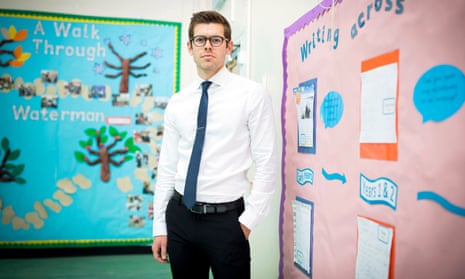Like many LGBT teachers, Bradley Saunders learned to live a double life. To his close friends and family he was a young gay man in a steady relationship, while at the primary school where he worked his home life was a secret. He avoided questions about weekends, pretended to go on holiday with his family, and did not take his partner to school social events.
So when after four years he moved to a job as director of learning for the Hearts academy trust, and was approached by one of the trust’s teachers, Jane Robinson, about leadership training for LGBT teachers, his first thought was to turn her down.
“I had my school life and my home life and I was very happy with that. I perceived them as two separate entities,” he says. “Then I thought, as I was aiming for headship maybe I would get some useful CPD out of the course, so I put my name down.”

The course – the Courageous Leaders programme – set up in 2016 by Robinson, head of Hilltop Infant school, in Wickford, Essex, with money from the Department for Education’s equality and diversity fund, changed his life and helped him gain promotion. He is now head of two of the trust’s primary schools, Waterman primary and Stambridge primary, in Rochford, Essex; he no longer hides his sexual orientation, and acts as a mentor on the programme.
“It was only when I was put on the spot in a circle of people on the Courageous Leaders programme that I realised I was not being my true self,” says Saunders, 30. “We talked about different scenarios, such as whether you would bring your partner to the summer fete. I said no, I wouldn’t do – my partner is my home life and school is my job.
“‘Why is it all right for the teacher next door to take their partner, but not you?’ I was asked. It challenged my thought processes and I realised that if I wanted to become an authentic leader I had to be open. By keeping my worlds separate, I wouldn’t achieve it.
“I also felt a responsibility to the children to ensure that the teaching staff represented society,” he says.

On paper, the UK is one of the world’s most liberal societies. Same-sex couples can marry, adopt children, enter into civil partnerships and can claim legal protection against discrimination from the 2010 Equality Act. In 2005 transgender people finally got the legal right to change gender.
But the legacy of the Thatcher government’s section 28 of the Local Government Act 1988, repealed in 2003, lives on. It essentially forbade schools and local authorities from acknowledging that gay people existed, and even today high-profile cases of gay teachers being hounded by religious groups create a climate of fear.
Robinson, who had hidden her own sexuality when she started teaching in the 1980s, started the Courageous Leaders programme because she believed LGBT teachers were missing out on promotion, as they were afraid to put their heads above the parapet.
The year-long programme involves three days of face-to-face training, including lectures, guest speakers and workshops, with the aim of instilling leadership skills and boosting confidence through sharing experiences and mutual support.
She summarises the success in a new book, Courage in the Classroom, that includes chapters by lesbian, gay and transgender teachers about overcoming prejudice and learning to be themselves.
“At the end of the year, all but one of our 15 courageous leaders on the course had gained promotion,” she says. “They wanted support to acquire the skills to achieve that but, more importantly, they wanted a safe space to discuss their vulnerabilities, with colleagues who understood exactly how they felt about their sexuality and its impact on their career.”
Catherine Lee, deputy dean for education at Anglia Ruskin University and the book’s editor, and also a leader on the programme, says changes to protect minorities at the macro level do not necessarily mean teachers feel any safer, or are included in their staffrooms and classrooms. She is donating profits from the book to the programme.
“At the university we work with hundreds of schools and I am not aware of more than a handful of LGBT teachers in head or deputy-head roles. This is what the course is addressing,” says Lee, who left teaching in 2010 after a 20-year career when a parent claimed she was a bad influence for living with a female partner.
Lee says research shows a complex intersection between an LGBT teacher’s personal self and professional self, and this prevents some teachers from engaging 100% with their school community.
“They are likely to live outside the catchment area, they don’t go to social events, they sometimes even avoid the staffroom because they don’t want to talk about what they did at the weekend,” she says.

“What those on the Courageous Leaders course tell us they appreciate most are the networking opportunities, being able to check in with each other and get support. If there had been a group like that when I was teaching in schools it would have helped tremendously.”
One LGBT teacher mentioned in the book is Catherine Halliwell, who helped students set up an LGBT society at her girls’ grammar school, Nonsuch in Sutton, Surrey.
“I got an email from 15-year-old students asking if I would support them setting up an LGBT society. It was very much student-led and had a big impact. It didn’t all happen at once, lots of little steps added up and now we have a pride week in July with LGBT flags in reception and an LGBT film festival,” Halliwell says.
The society’s founder, Cerian Craske, 20, now studying English at Cambridge, recalls it started with about 20 girls meeting in an IT room on a Wednesday lunchtime.
“Then we put on things such as the big gay bake sale and it really took off and attracted girls of all ages and their friends, who came to support them,” she says. “It was an amazing thing for the school to support LGBT students and teachers so they were able to be themselves. It was so important to me that I could see an adult who was LGBT and having a happy life.”
The Courageous Leaders scheme is now in its fourth year, and 80% of participants have achieved promotion while on the course, or within 12 months.
Alex Townsend, deputy head of Bedford sixth form college, attributes his promotion in January to the confidence he gained on the course to be himself.
“I jumped from business studies teacher straight to deputy head and I can’t credit the programme enough for what it did to show me that I could use my diversity positively, rather than hide it,” says Townsend, 31.
“The biggest thing for me was the very first five minutes of the first day when I found myself in a room full of gay teachers for the first time. That would have been profound in itself, without all the training we had and the amazing speakers.”
He says: “I never used to be comfortable wearing a rainbow. I’m ambitious and I had always resisted the idea that my sexual orientation could inform any part of my progress through life. To my detriment, I had gone to the other extreme by not allowing it to be part of it in any way.
“All that changed when I met other people on the course. I came back to college and started an LGBT social group for students and then set up a scheme of LGBT pastoral support officers. I don’t have to walk down the street in a parade to make a difference – I can do it where I work.”
